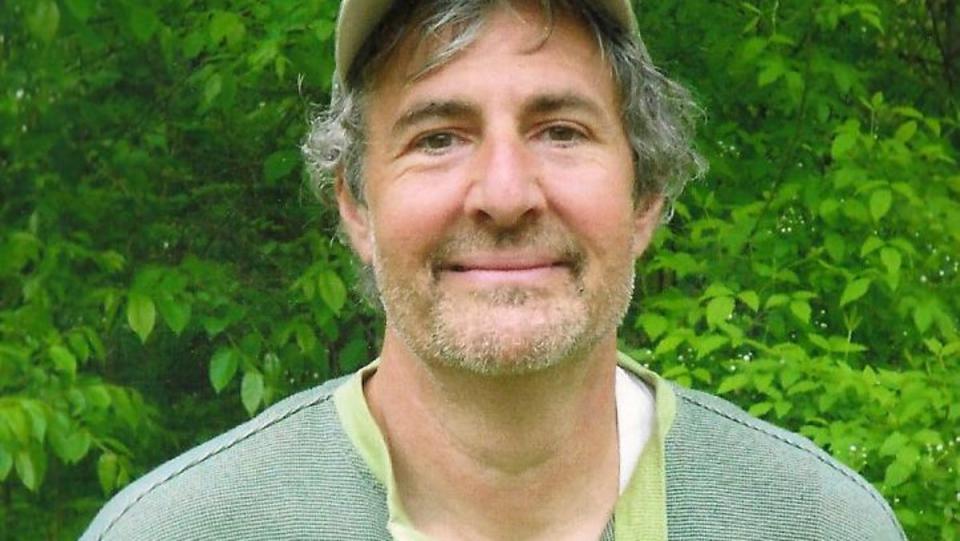Working hard to keep our musical heritage alive
This is an encore column that was originally published in the Times-News several years back. David Weintraub has been a contributing columnist for more than 15 years. He’s taking some occasional breaks this year to pursue other creative projects and the paper is reprinting some of his best loved columns.
Music touches us in ways that few things can. Who could doubt Henry Wadsworth Longfellow’s words, “music is the universal language of mankind?” Deaf people experience music as profound as hearing people because music isn't about hearing. It’s about feeling. It comes through the heart, not only through the ears.
For me, it’s like a magical rope that connects us through the generations, through the dimensions of time and space to who we really are. Whether it’s a song we’ve just heard for the very first time, or a ballad that’s been passed down for 200 years, music is a form of expression that transports us to places that we could never go alone. And when it stops, it can be earth shattering.
There was magic in these mountains echoing from Bearwallow Mountain to Mt. Mitchell, from Catawba Falls to Linville Falls. A tapestry of pickers and grinners, playing on fiddles, guitars, mandolins and banjos on the back porches of towns, large and small throughout the Southern Appalachians. After a hard day in the field or factory, these mountains became a concert hall keeping alive a centuries-old musical tradition. As communities grew, back porches soon expanded into living rooms, church halls and community centers. It gave people a chance to reconnect with friends and neighbors and rejoice in a culture that seemed would never die.
The little town of Old Fort was one of those places. For nearly 30 years, this gateway to the Blue Ridge Mountains continued the musical legacy of their forefathers and foremothers. It all began one day when Max Woody, a sixth generation chair-maker, ended his week by pulling out his fiddle and jamming with fellow musician and friend Jim Duckworth. The next week, a few more pickers showed up and a small crowd gathered to listen. The crowd and the musicians grew larger the following week and a new tradition was born, rooted in generations of friends and neighbors on back porches everywhere. Soon all the chairs in Max's chair shop were taken and then some. The Friday night of music evolved to become Old Fort Mountain Music which found a permanent home in the old Rockett building in downtown Old Fort.
For 28 years on Friday nights, musicians, ballad singers, cloggers and others would gather and perform bluegrass, gospel music, ballads and more. Admission was always free and local volunteers would bake homemade cakes and pies and make lemonade and iced tea. The dance space was always filled with dancers and cloggers of all ages. Some up-and-coming performers went on to Nashville and other places to create their own musical legacy. A Wall of Fame displayed more than 50 musicians who had graced Old Fort’s music program over the years and now were gone.
This tradition became the pride of the community. It was a place for elders and young’uns to hang out without television to distract them, without alcohol and without taking a large bite out of the wallet. It became a gathering place of neighbors and friends, tourists and passersby, something that everyone looked forward to. But that tradition is no longer.
Old Fort wasn't the only town who fought to keep a piece of their heritage alive and thriving. For many years, Spruce Pine hosted the Carolina Barn Dance at the old Carolina Theatre every Saturday night featuring the likes of Flatt and Scruggs, Bill Monroe and Ralph Stanley, broadcast weekly to 512 stations nationally, making it the Grand Ole Opry of Western North Carolina, until its untimely death in the mid-1950s.
Old Fort Mountain Music closed its doors in downtown Old Fort in 2014. I was privileged and honored to be invited to meet the organizers of the program and to film their final night. As you can imagine, it was bittersweet. Tears flowed freely when the last gospel song, the final bluegrass tune faded out.
When the music dies, something of ourselves vanishes as well. That’s why some of us work so hard to keep the heritage alive. It’s not only about the music. It’s about defining ourselves today through our connections to the unbroken chain of the past. You can watch a short tribute film for Old Fort Mountain Music online here: https://youtu.be/AXGUpNy6jys. For more about the Center for Cultural Preservation’s work to preservation mountain culture and traditions, find them at SaveCulture.org
David Weintraub is a cultural preservationist, filmmaker and environmental troublemaker and can be reached at www.saveculture.org or (828) 692-8062.

This article originally appeared on Hendersonville Times-News: Working hard to keep our musical heritage alive

